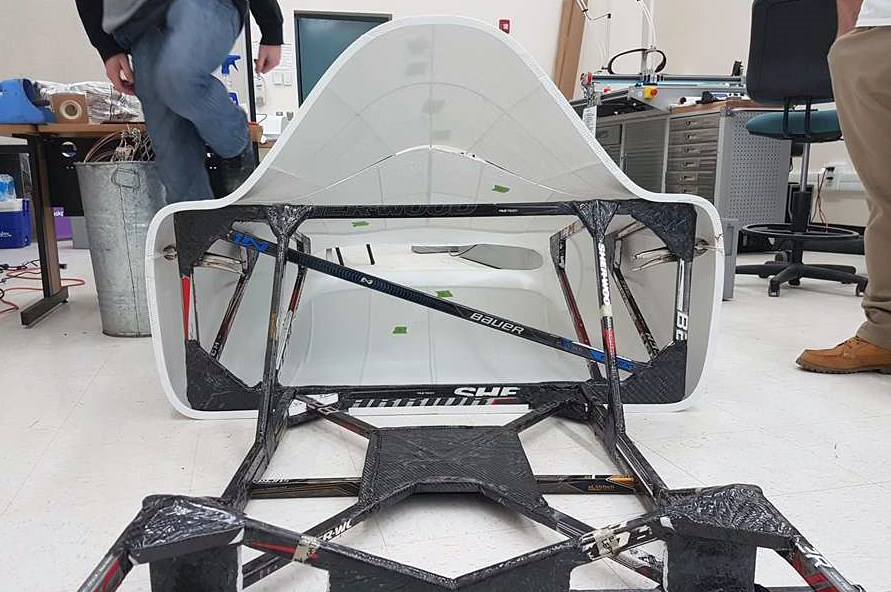A former Flin Flonner is part of a team looking for a new edge in environmentally friendly cars.
Jon Lyons and his team from Saskatchewan Polytechnic will take part in the Shell Eco-marathon in Sonoma, Calif., from April 19 to 22.
The event is open for specially built, low-emission vehicles, with one of the main goals being high fuel efficiency. Schools, colleges and universities from around North and South America will participate.
Last year, one team entered a vehicle that achieved 2,713 miles per gallon – enough to go from Flin Flon to Winnipeg and back almost three full times on one gallon of fuel.
The Saskatchewan Polytechnic team and vehicle will ship out to the west coast in the coming days for the event, participating in the Urban Concepts portion.
The group’s vehicle is custom-built and designed from the ground up. Each member of the Saskatoon-based team has assumed certain responsibilities – Lyons has mostly worked on the car’s engine, motor tuning and diagnostics, including sensors and drive testing.
“Right now, the prototype is pretty much ready to go. We just need to do a little engine tuning. The wheels are going on, the motor will be mounted and we’re putting the body shell on.”
The vehicle’s bodywork is almost exclusively made out of plastic filament, made in one sheet with 3D printing technology.
In trying to find a new edge with solid, lightweight materials, the Saskatchewan Polytechnic team found a quintessentially Canadian answer for the car’s frame – hockey sticks.
The frame of the vehicle is built heavily out of broken sticks, donated to the team from a variety of sources.
“We did a lot of testing on them. They’re all carbon fibre sticks and carbon fibre is nice, lightweight and strong,” said Lyons.
“We were kind of reusing material. It’s a recycling sort of thing.”
In a roundabout way, Hapnot Collegiate grad Lyons sees it as a tie to his hometown.
“What got me excited about the project, to be honest, it was kind of the hockey sticks. It was like bringing some of my old world into my new world,” he said.
The competition’s goal is one that resonates with Lyons, who hopes to help create more environmentally friendly vehicles after graduation.
“What actually got me into mechanical engineering technology was renewable energy resources. To go along with this eco-car race, it’s building on fuel efficiency and reducing your carbon footprint,” he said.
“Hopefully, when I get out of school, I can go into the world and make it a little bit better, you know?”




